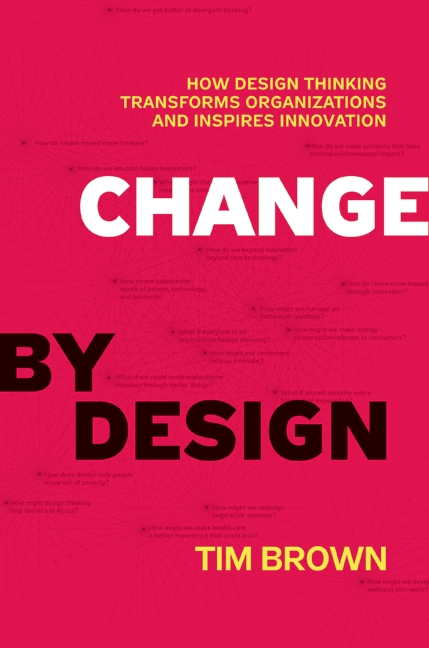As I reported in my post on the "Dumbest Practices Used By U.S. Companies," I was fortunate to be part of the closing panel at the Singapore Human Capital Summit last week. I had a delightful time in Singapore, as my hosts did a wonderful job of organizing the conference and making sure that those of us involved in the conference never stopped exchanging ideas with others — in talks to large groups, meetings with small groups of business leaders and government employees, and one-on-one meetings of all kinds. My liaison for the conference, Noelle Yee, somehow scheduled things so I was busy almost every minute but somehow never seemed rushed.
I met all kinds of interesting people at the conference, but several stand-out. The first was Yuzaburo Mogi, CEO of the Kikkoman Corporation, which I believe is the leading producer of soy sauce in the world. Mr Mogi's ancestors started the company over 300 years ago and he has worked there for 51 years. Mr. Mogi was fun and had a great zest for life. I loved hearing his stories. Among other things, he described his firm's ventures into the wine business and how, although it isn't as profitable as soy sauce, the wines made by his company (which are not available in the U.S.) have been winning awards in Europe.
The second was Dr. Robert Care, CEO of Arup Australasia. I have blogged about Dr. Care before, as Arup is renowned for doing the toughest structural engineering work in the world, from the Sydney Opera House to the stunning "water cube" in 2008 Peking Olympics. I confess, however, I was especially keen to meet Dr. Care to talk with him about the "no dickhead rule" that he had instituted and that I had blogged about here before. Dr. Care, a charming and tall man, explained how they were using the rule to encourage civility and cooperation, which was essential to both the kind of work they do and — as it is a firm wholly owned by an employee trust — essential given the kind of culture they have and want to perpetuate.
Third, and although I have known him for about 30 years, I was especially impressed with an exchange that HR guru Dave Ulrich had with an audience member, who was lamenting about the lack of power that HR had and who wondered if people from HR could ever be CEO's. Dave, quite wisely I thought, gently responded that it wasn't constructive to focus on that question, as if you were in HR the kind of work you do is remarkably valuable to your company and it is your job to do it as well as possible — and it is just isn't very constructive for your colleagues or yourself to obsess over issues like whether HR has enough power. I am not even sure I entirely agreed with Dave's answer, but he stated it more elegantly than I did here, and — as he told me in private conversation shortly thereafter — people who focus too much on becoming top dog in the future and not enough on the quality of the work they do right now are the wrong people to take leadership positions.
I could go on and on about other people and things I learned. But because so many readers here and at BNET wrote so many great comments (about 75 total at the moment) about "the dumbest practices used by U.S. companies," I thought I had better tell you how those ideas shaped my comments. I did not directly label my closing remarks as "dumb practices."Rather as I hung out at the conference, and thought of the comments you made and the topics we were discussing at the conference, I decided that — in the short 10 minutes I had (I confess that I ended-up going 12 minutes… my apologies to master of ceremonies Professor Narayan Pant), that I would use the time to question some deeply held and often suspect HR assumptions and practices. The ultimate aim of the conference, and a host of other other efforts by Singapore's Ministry of Manpower and other agencies is to develop and spread the very best "people management" practices throughout Singapore and the rest of the region. Although many executives and academics at the conference were mindful of these challenge, it still felt like they (and me too…. it is an automatic response) often mindlessly slipped into doing what had always been because, well, it had always been done that way.
As such, about four hours before my talk, I slipped away for a couple hours and pounded out the list below of 10 "Flawed, Suspect, and Incomplete Assumptions About Managing People." The conference organizers, bless their hearts, were nonplussed by my absurd request to produce and pass out 800 copies to audience with a couple hours notice. I thanked and apologized to Low Peck Kem (who has a great job title "Director of People Matters" at the Ministry of Manpower), and she gave an answer that I've never heard before "Anything is possible" and added "this is easy."
The handout is reprinted below, and although it was impossible to include everything in this 12 minute talk (indeed, I only made it to point 8), I think you can see the influence of your comments as well as many other themes I have talked about on this blog. The point I emphasized to the audience was that I am not even sure that I believe everything on the list: My goal was to jolt them into thinking about and to challenge their assumptions. Also, to add some background, I have provided links to past posts and other sources that expand on the points below. I would love your comments and especially your disagreements because, as I said, this list is meant to provoke rather then persuade.
Bob Sutton’s Top 10 List
Flawed, Suspect, and Incomplete Assumptions
about Managing People
1. HR ought to be all about spotting, hiring,
and breeding individual talent (HR could pack a bigger wallop by focusing
on teams and networks more).
2. HR should focus on finding, hiring, and
developing the very best people (Bad is stronger than good – about 5 times
stronger — so screening-out, reforming,
expelling the very worst people is more crucial to collective performance).
3. Find some great
superstars and pay them whatever is necessary to keep them happy… and certainly
a lot more than everyone else (The best organizations pay higher than
competitors, but have more compressed pay).
4. Competition
makes people, teams, and companies stronger (Unless people and teams are rewarded for
undermining one another rather than helping each other… dysfunctional internal
competition is one of the most pervasive problems in American firms).
5. Harmony and
having a shared vision are crucial to success (Perhaps for routine work;
but creativity depends on battling over ideas. Part of HR’s job should be to
teach people how to “fight as if they are right, and listen as if they are
wrong”).
6. The key to success is copying practices used
by the best companies. (The best
companies may be succeeding despite rather than because of their HR practices).
7. Every company needs a great performance
review system. (Are they really
worth the time and effort? Do they do more harm than good?).
8. Taking a leadership
position brings out the best in people. (This is a dangerous
half-truth. Giving people power over
others turns them into self-centered jerks).
9. The most important thing HR can do is to find
and develop great senior leaders (Having an organization with a high
proportion of good bosses is probably more important).
10. The best organizations have the best people,
“the people make the place.” (There
are huge differences in talent, but the best organizations typically have the
best systems and not necessarily the best raw talent).
Robert Sutton, Stanford University (www.bobsutton.net)
Singapore Human Capital Summit
30 September 2009


